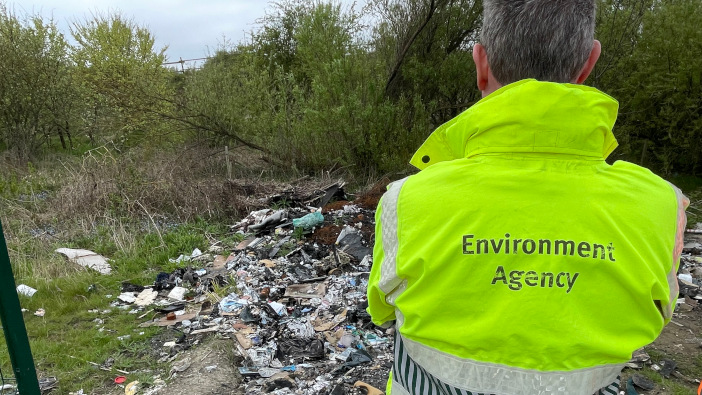The Environment Agency has warned landowners to be vigilant and secure premises against criminals dumping illegally collected waste.
In 2023, the Environment Agency’s National Waste Crime Survey found that 85% of those surveyed had been affected by small-scale flytipping, while 20% had been impacted by large-scale operations.
Further research by the NFU showed that 85% felt that the problem of flytipping in their area had either not changed or had gotten worse in the last five years.
Waste dumped on privately owned land becomes the responsibility of landowners, with costs exceeding £200,000 in some cases. It’s estimated that waste crime also costs the economy £1b through evaded tax, environmental and social harm and lost legitimate business.
Property and landowners are urged to follow these simple steps to protect themselves against waste criminals trespassing on their premises:
- Check any empty land and property regularly and make sure it is secure.
- Carry out rigorous checks on prospective and new tenants. Property and landowners are responsible for ensuring anyone leasing their property and land complies with regulations. They are committing an offence by allowing waste to be stored on land or property without the relevant permissions. This could leave them liable to prosecution.
- Be vigilant and report any suspected illegal waste activity to the Environment Agency’s 24-hour incident hotline: 0800 80 70 60.
Steve Molyneux, Environment Agency deputy director of waste regulation, said: “Our environment is a precious resource and one we need to guard now and for the next generation, but there are networks of criminal gangs operating across the country just waiting to spoil it for everyone.
“They may offer owners cash to store waste at their property or on their land, promising to remove it later. They won’t. Some don’t ask. They break in, dump waste they’ve illegally collected and disappear.
“Waste criminals need access to places to dump the rubbish they illegally collect – but your vigilance can stop them. Shutting them out of property and land is just one tactic to scupper these rogues.”
Country Land and Business Association president Victoria Vyvyan said: “Fly-tipping is a crime that is blighting rural communities. Farmers and landowners bear the cost of removing rubbish and they pay on average £1,000 to remove waste. This is not a victimless crime – in some cases they have paid up to £100,000 to clear up other people’s mess or risk facing prosecution themselves.
“It’s not just litter blotting the landscape, but tonnes of household and commercial waste which can often be hazardous – even including asbestos and chemicals – endangering farmers, wildlife, livestock, crops and the environment.”
The Environment Agency works with partners including the police, HMRC and DVSA to stop waste criminals. Last year, the director of GB Waste Management, Newcastle Upon Tyne, was ordered to cover clean-up costs, totalling £32,000, after allowing asbestos waste to be dumped on farmland.


